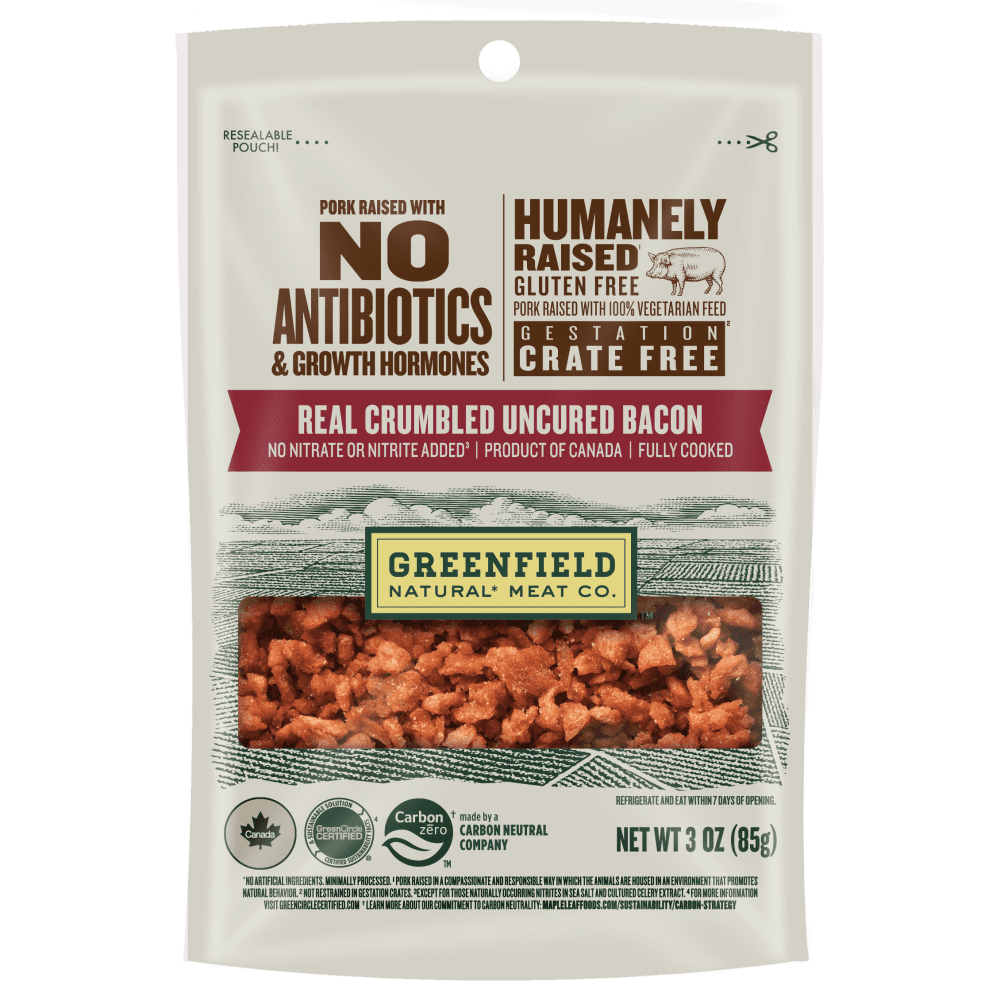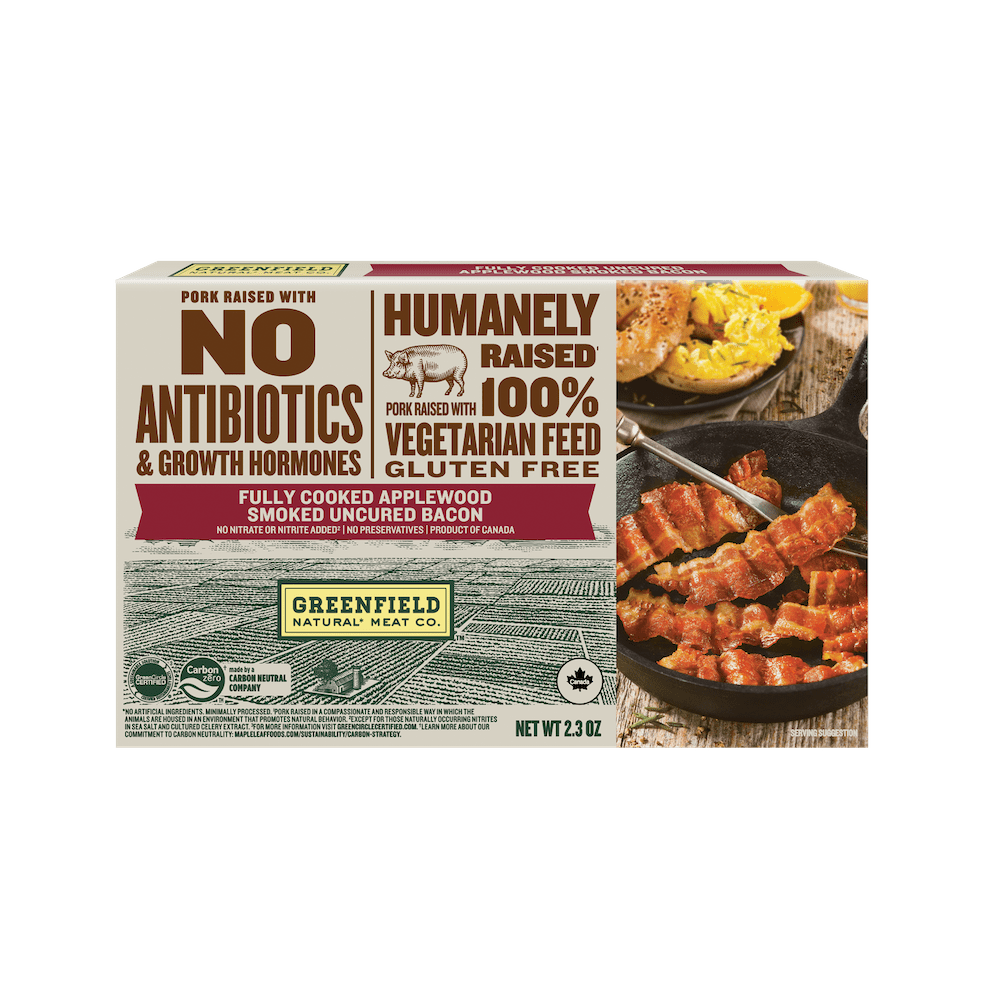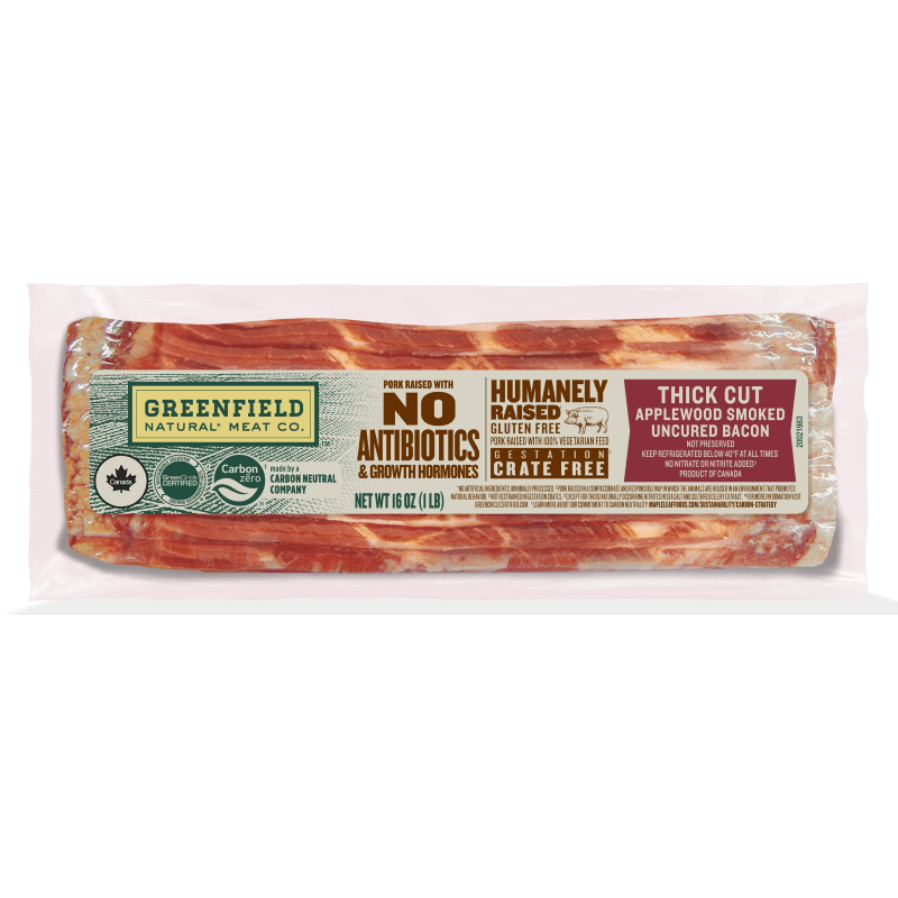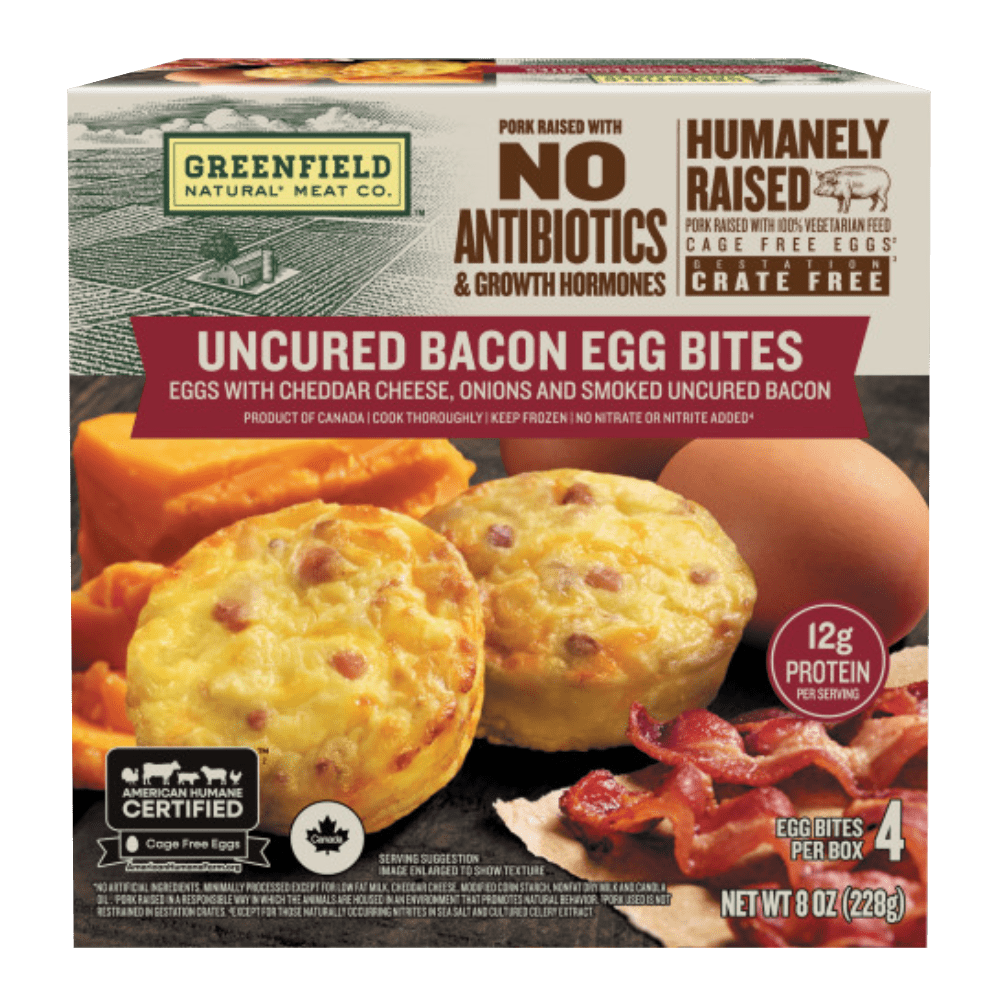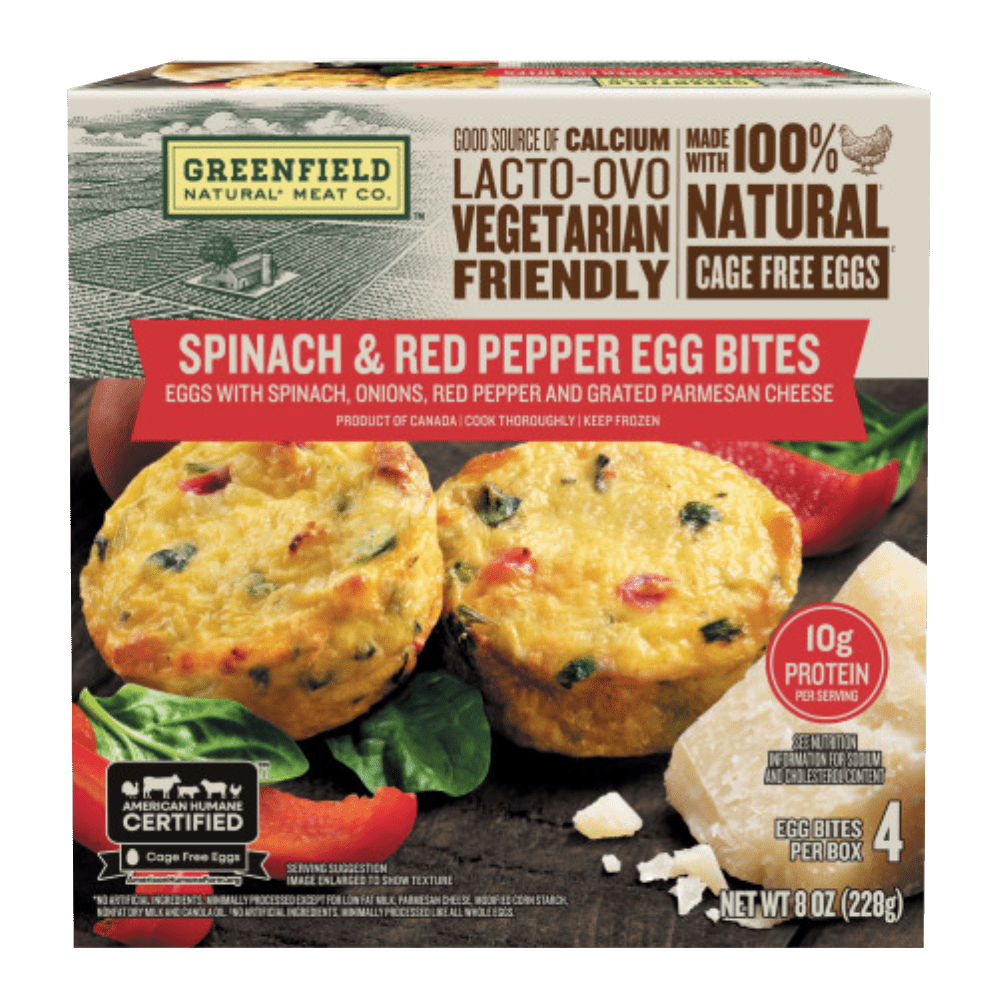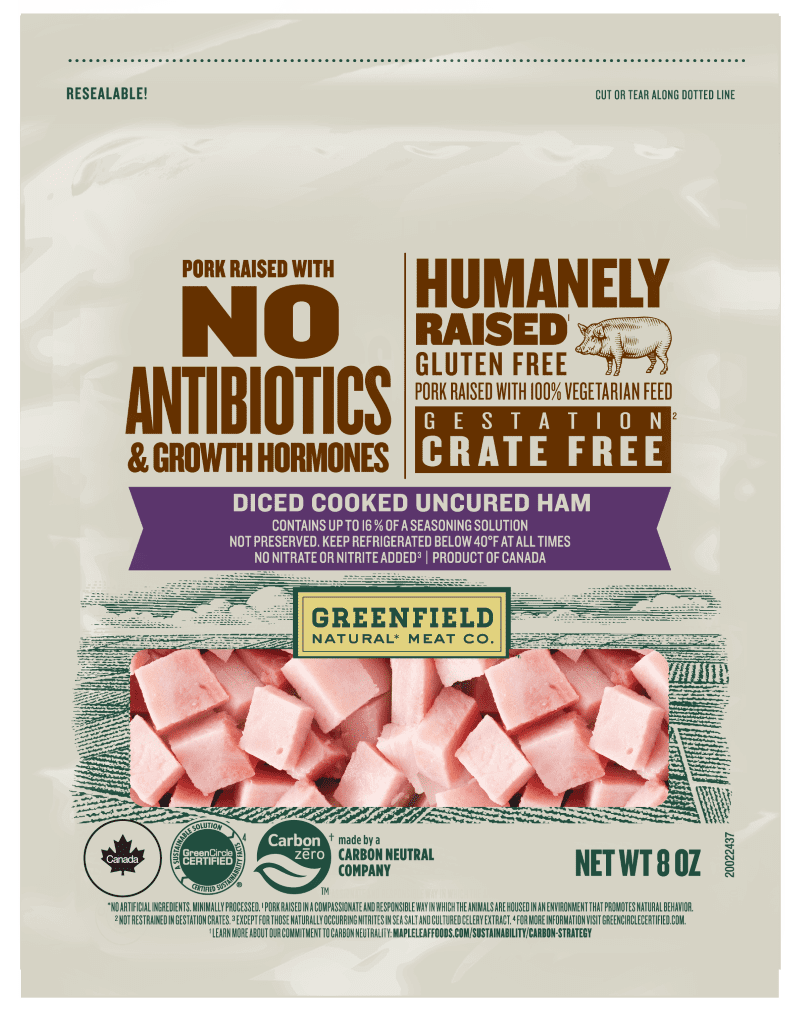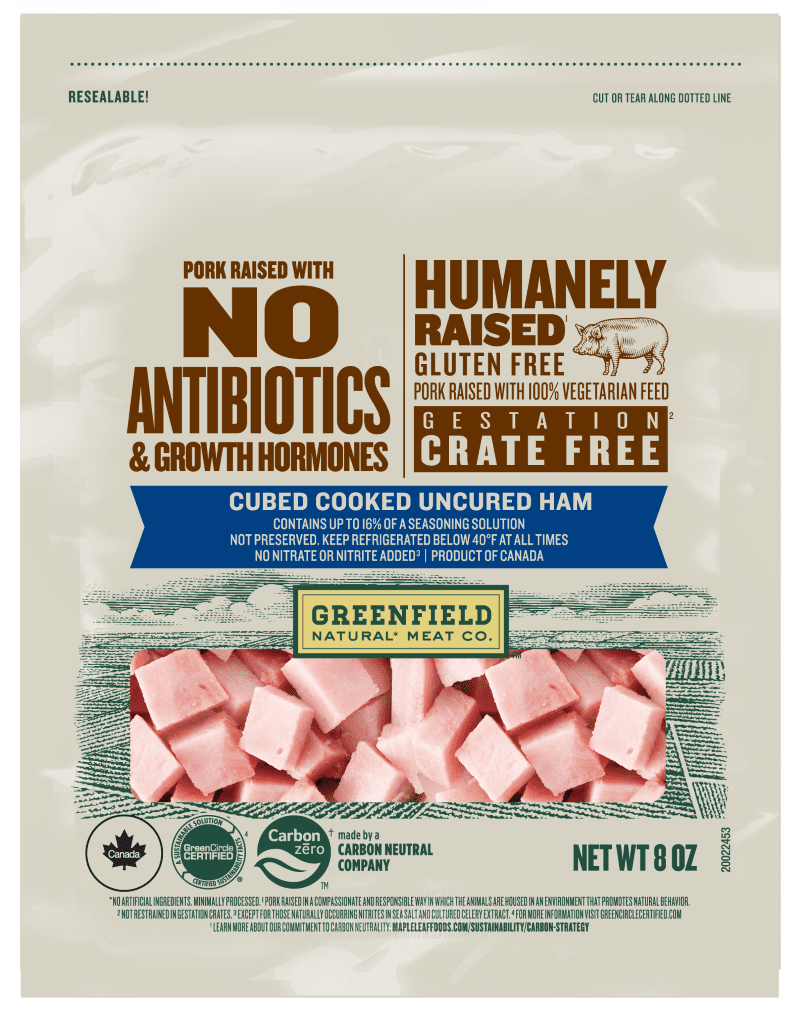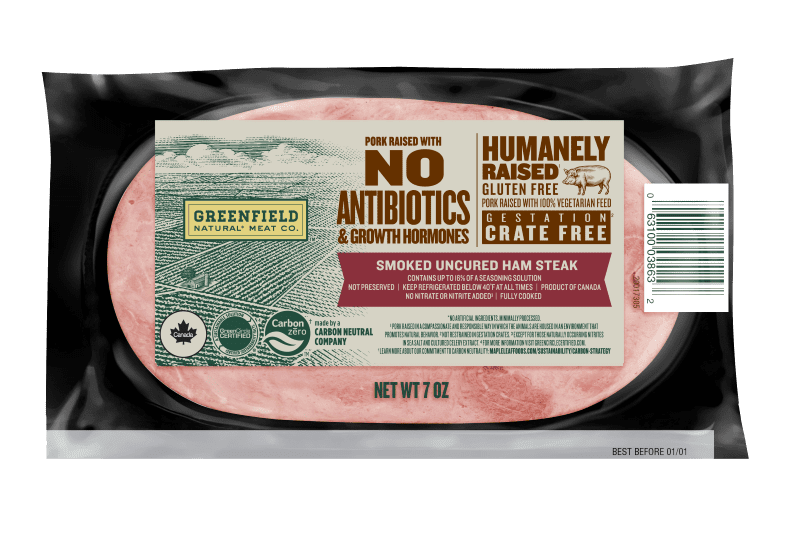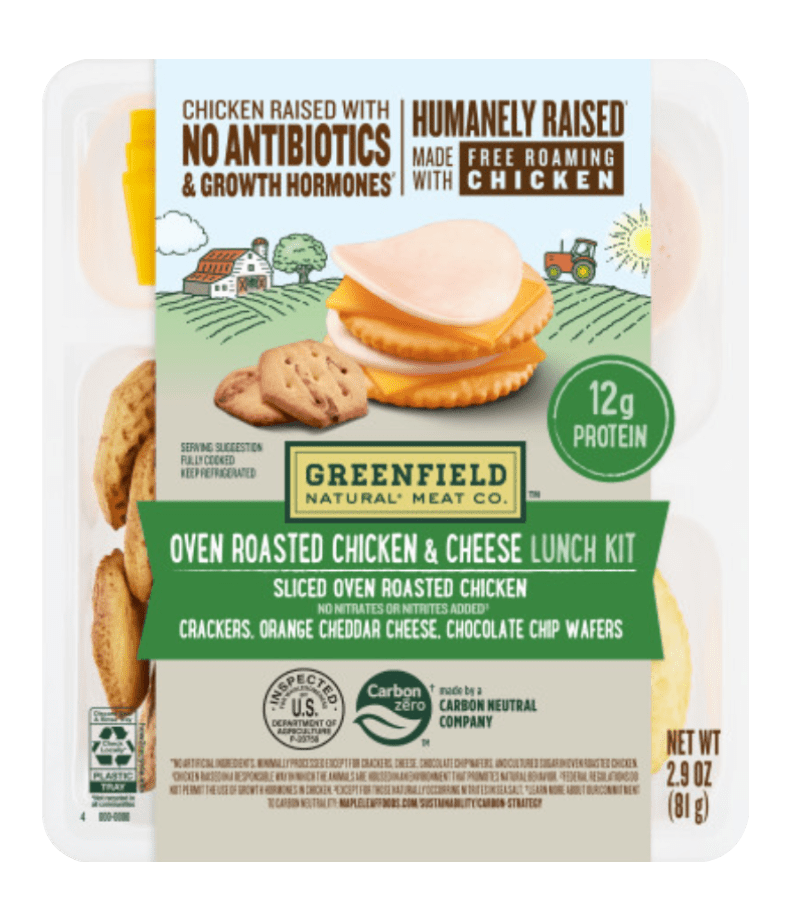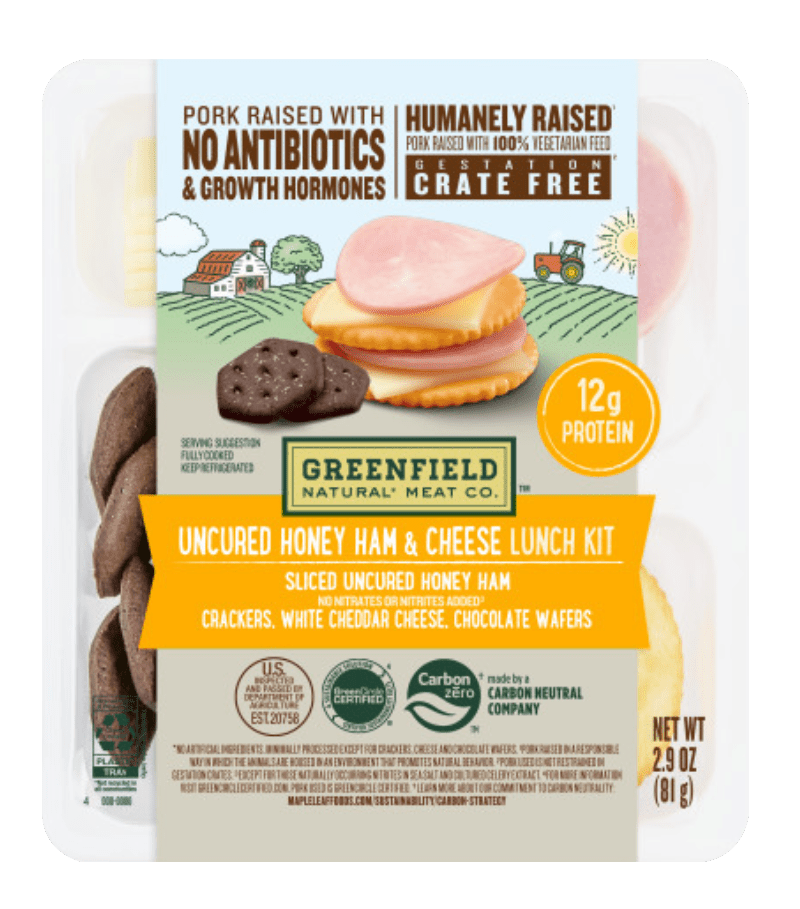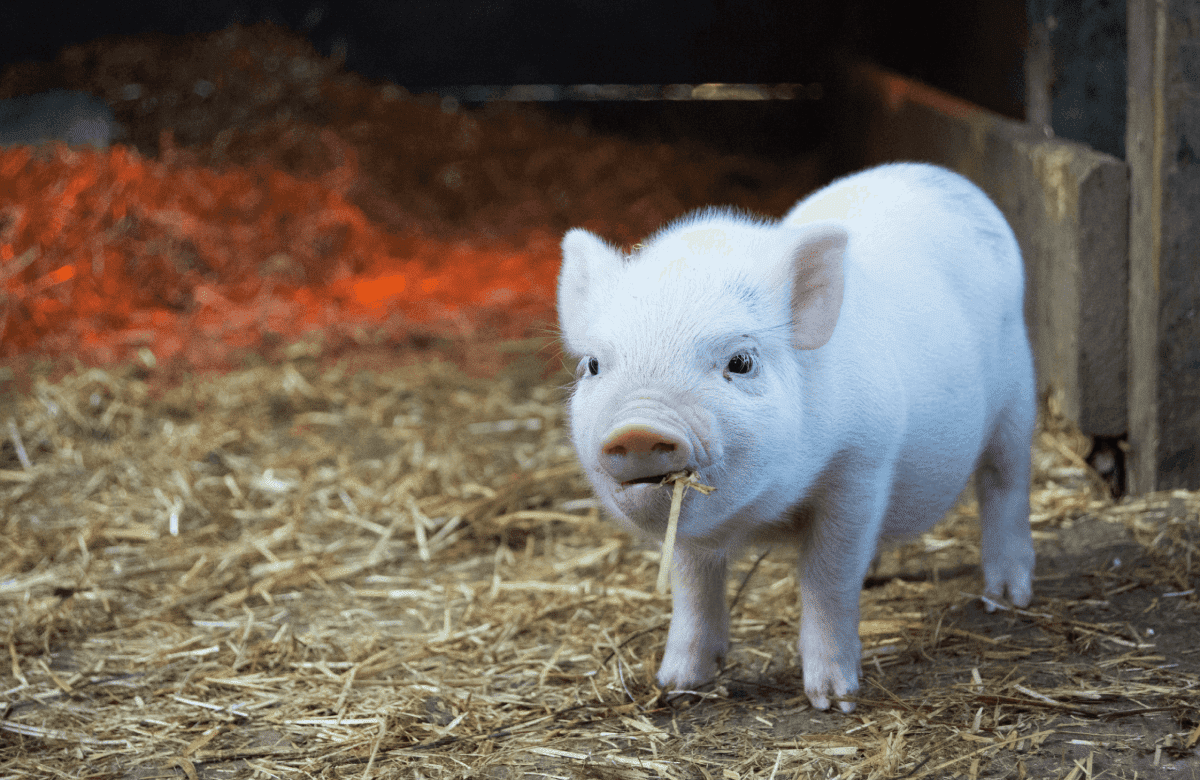
gestation crate free
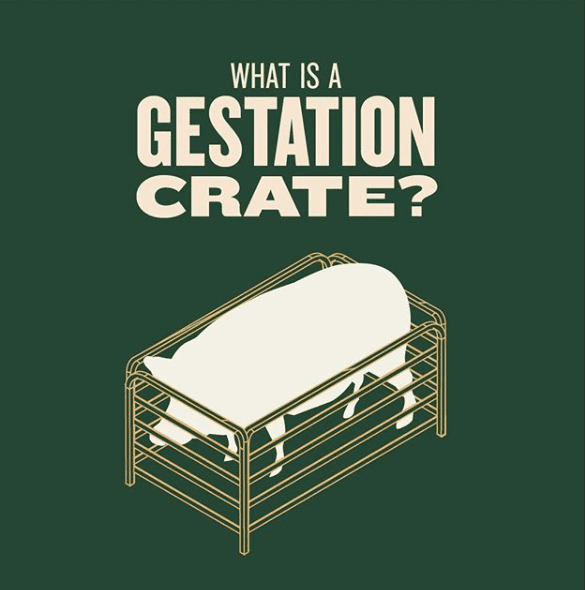
A gestation crate is a metal stall where sows (pregnant pigs) are kept throughout their pregnancies. These crates are 7 feet long by 2 feet wide (14 square feet).
While pigs raised for meat are housed in open pens, industry practice has been to confine sows in gestation crates for their entire reproductive lives. At Greenfield Natural Meat Co.™, we challenged ourselves to do better and have invested in research and significant barn redesign to convert all our sows to open sow housing, and are proud to announce that we are now Gestation Crate Free!
TAKE A LOOK INSIDE OUR GESTATION
CRATE FREE SOW BARN
The different types of sow housing
conventional sow housing
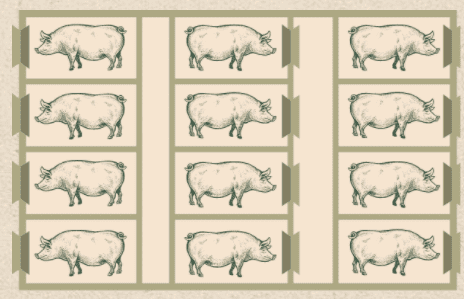
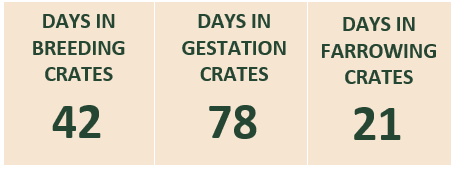
The majority of the industry applies this conventional system for their breeding practices.
In conventional sow housing, a sow:
- Cannot turn around or exercise
- Cannot socialize in groups
- Has limited interaction with caregivers
- May experience injuries due to lack of movement
- Spends their entire reproductive lifetime in confinement
loose sow
housing
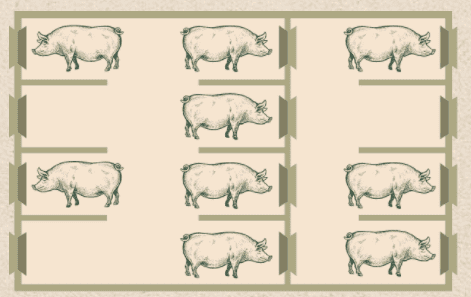
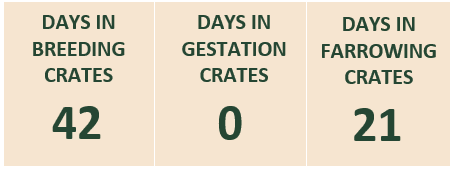
A percentage of the industry has adopted a system that allows sows more movement during pregnancy.
In loose sow housing, a sow:
- Is still housed in stalls during their nursing and breeding stages for safety of the animals and caregivers
- Has increased opportunity to exercise and socialize compared with traditional gestation stalls
gestation
crate free
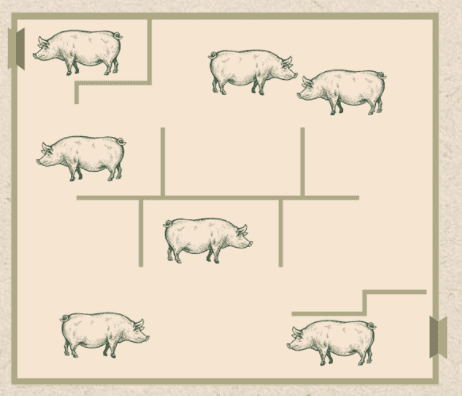
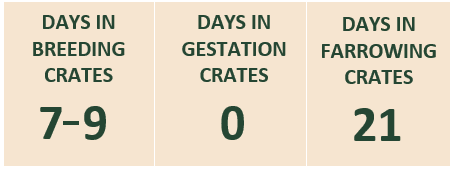
Also referred to as Advanced Open Sow Housing, our Greenfield Natural Meat Co.™ approach significantly reduces the time a sow spends in breeding stalls and provides 100% open housing during pregnancy. The sows are free to roam, feed and socialize with the other animals.
In advanced open sow housing, a sow:
- Is free to explore their surroundings and have social interactions with each other and their caregivers
- Has improved wellbeing, leg and joint health
- Is fed through electronic sow feeding system that ensures optimal nutrition for each individual animal and reduces aggression among group-based sows
- Spends only 20% of their reproductive lifetime in confinement, only during the breeding and nursing stages for the safety of the animals and caregivers

